How Accurate Is The Good Place's Philosophy?
We asked the show's resident philosophy consultant to teach us Ethics 101.
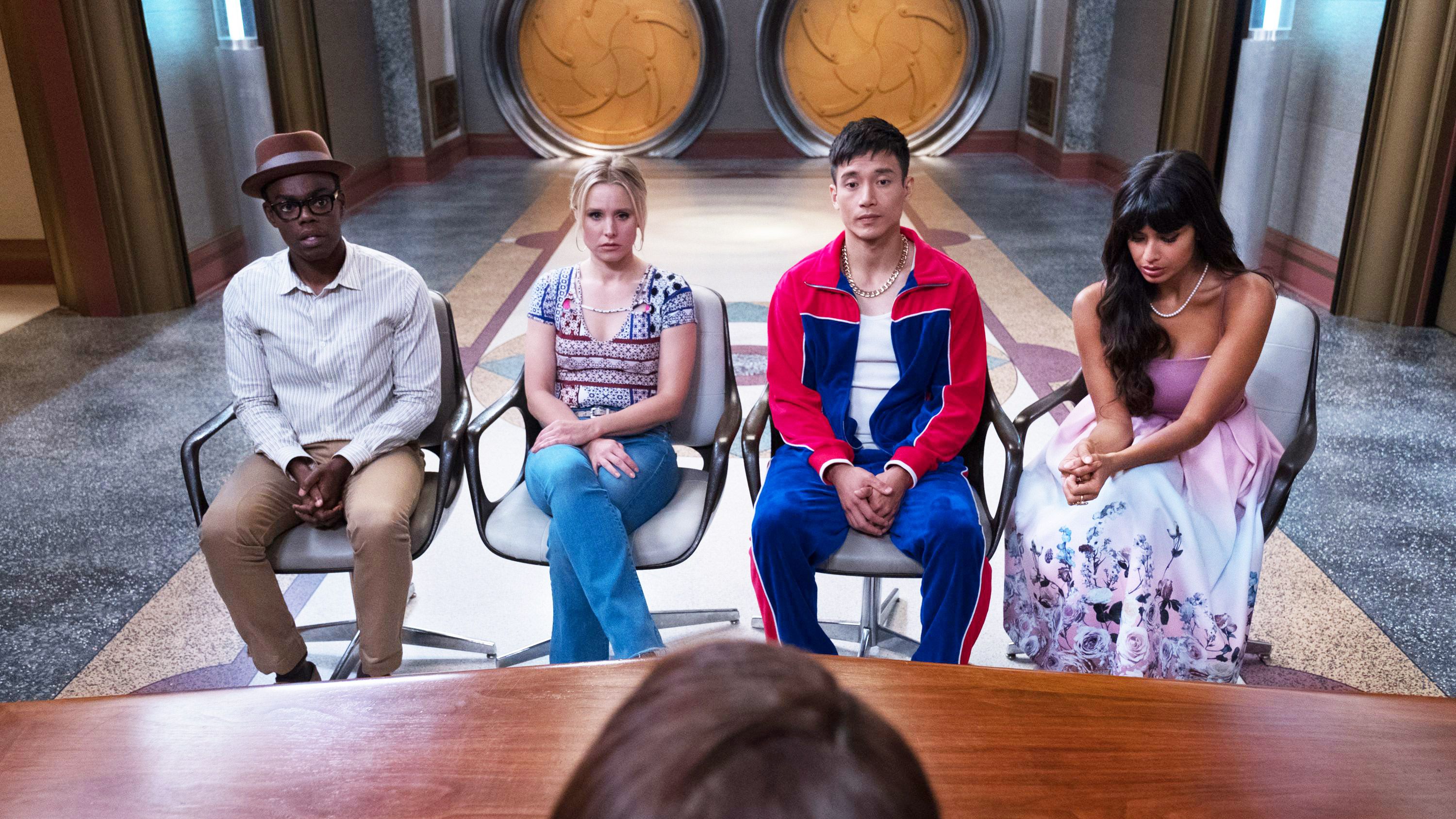

The Good Place wrapped up its third season last week—though many of you are still streaming on NBC.com, we know—and left in its wake a slew of philosophical conundrums. That isn’t surprising news if you’re a fan of the series: The NBC afterlife comedy takes its relationship with philosophy seriously, and enlists experts to ensure all ideologies are explored in ways amateurs (like myself) can understand them.
But could watching The Good Place help you ace an ethic class? Are we subconsciously learning philosophy from this hilarious comedy starring Ted Danson? We decided to ask the expert: Pamela Hieronymi, Ph.D., professor of philosophy at UCLA and a consultant on The Good Place.
Here, she lays out the ways in which the show explores everything from Plato to existentialism, and reminds us that the sitcom is less a crash course in a specific sect of academia and more a reminder of how those values systems tend to come out when we’re among other people.
There’s a reason Chidi’s (played by William Jackson Harper) early philosophy lessons were built on the trinity of Socrates, Plato, and Aristotle.
Turns out, those three are the classical philosophy triumvirate. “Socrates never wrote anything and Plato was Socrates’ student,” says Dr. Hieronymi. “Plato would write dialogue with Socrates as a character. Dialogues are a good starting place for students because it presents philosophy as a conversation.”
Though starting with those three shows a sort of Western bias (there was important philosophical work happening in Asia and the Middle East at the same time), it made sense for The Good Place. “It’s kind of traditional for Anglo-Europeans to start with those Greek thinkers,” she says.
Michael’s second-season panic is a gateway to the idea of existentialism—but existentialism isn’t just one thing.
Some of us (but especially me) have spent years believing that existentialism is a single philosophical ideology. Not so, says Dr. Hieronymi. “Existentialism is a great moment in philosophy, but it’s not a single thing,” she explains. “A bunch of different people have different ideas about existentialism.” What the theories have in common is a focus on the analysis of human existence and the idea of human choice.
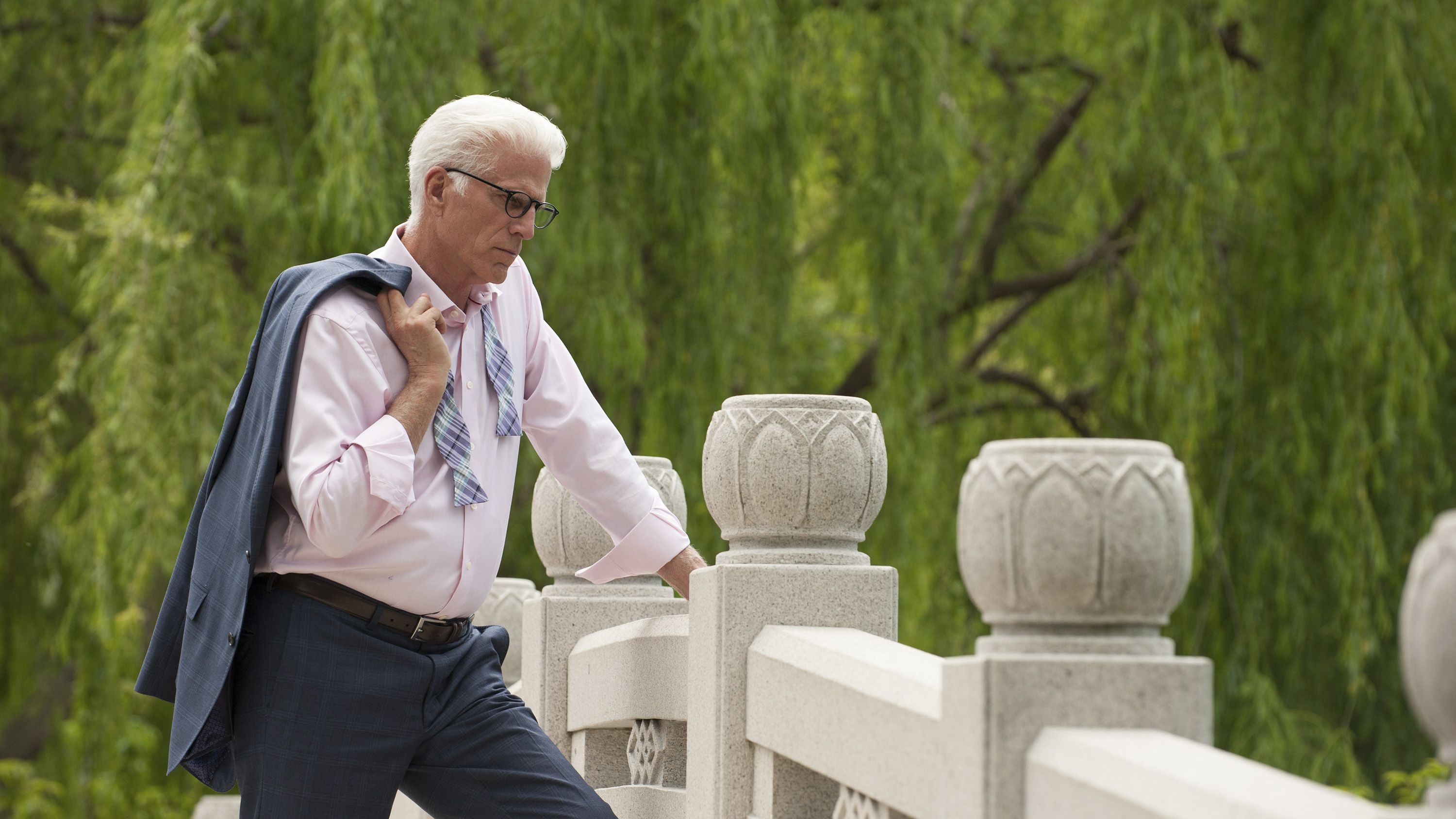
Michael (played by Ted Danson) looks excellent, mid-existential crisis
That said, Michael’s second season midlife (well, mid-afterlife) crisis was a great gateway through which to explore components of existentialism (while simultaneously advancing the plot). “In the beginning of season two, the writers had a problem: They needed to figure out how they were going to get a demon to learn to be good,” she recalls. “They used the midlife crisis as another way to make Michael question himself and to make him think about changing himself. So on the one hand, Michael is talking about existentialism, and that’s good. And on the other, they’re trying to get him to a place where he has to think about how to be a good person.”
Stay In The Know
Get exclusive access to fashion and beauty trends, hot-off-the-press celebrity news, and more.
Mostly, The Good Place wants to examine our relationships with other people and the impossibility of “good” versus “bad.”
As Eleanor once brilliantly said, “There should be a Medium Place.” Why? Because human beings are complex. We’re messy and complicated and tend to be defined by our relationships to other people. And that’s exactly the idea The Good Place tackles—via existentialism, of course. Says Dr. Hieronymi: “Part of the theme that’s been developing, I think, is the emphasis on the ways in which our relationships with other people matter to us. I think what they’re exploring in large are these questions about what it takes to be a good person, what makes us good people, and the way our relationships sustain us.”
Even though hell is other people? “There’s certainly an aspect of that in the initial set-up with Michael’s diabolical plan,” she adds. “But the upshot is that it’s the opposite. Your involvement with other people is what’s moving you along to becoming better.”
When the show introduced the trolley problem in the second season—Chidi must grapple with whether to kill one person or five via runaway trolley—it was actually a pretty great way to introduce the concepts of deontology and utilitarianism.
Odds are if you’ve taken even a first-year philosophy course, you’re familiar with the way The Trolley Problem™ is used to present the themes of deontology and utilitarianism. But, if like me, you did not (shout-out to my fellow drop-outs!), it’s a quick exercise through which to dismantle your entire system of thinking.
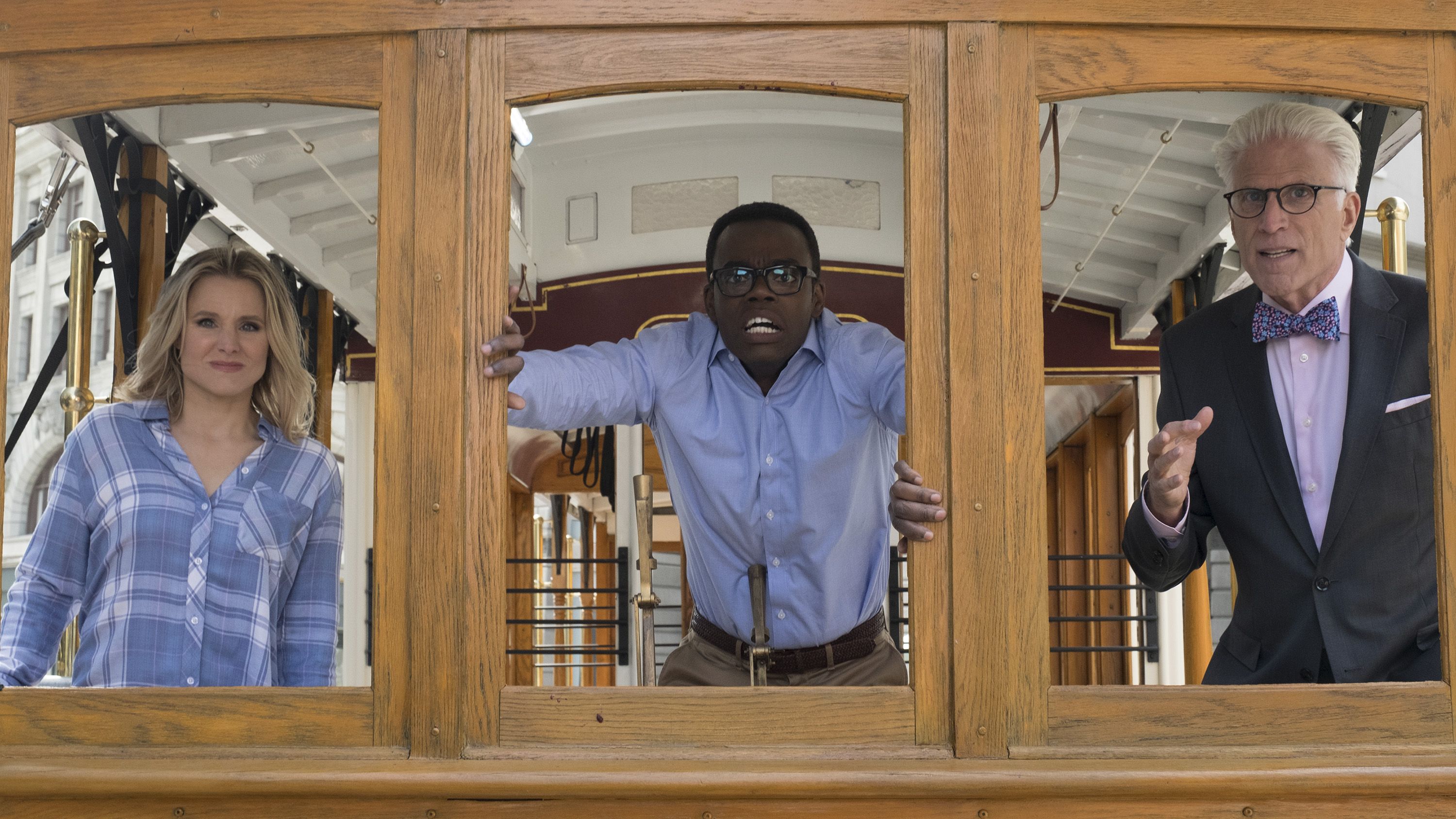
Chidi solves the Trolley Problem
“Utilitarianism is all about the consequences, and deontology is about there being certain rules, and whether you should violate those rules,” explains Dr. Hieronymi. “So you start with the trolley problem: Do you turn the runaway trolley on the one person to prevent killing five people? Most students say ‘of course.’ And then you ask them why and they usually say it’s better to kill one person than five people.”
Enter: the organ donation conundrum. “Then you present them with the transplant case,” she continues. “You can kill one healthy person and take their organs and save five people. And everybody says ‘no you can’t do that.’ The conflict between deontology and utilitarianism is about whether the ends always justify the means. Utilitarianism says, ‘Yes, that’s the only thing that justifies the means.’ And the deontologists are, ‘No, there are some things you can’t do even though it would bring about a better outcome.’ It gets really complicated.”
So to that end, the point system in the show is built on bringing about the most good. (Or, utilitarianism.)
That means Tahani is kind of a utilitarian. “Tahani’s a great example,” says Hieronymi. “Like, look at all the good I’m bringing about! But there’s something self-serving about her having done all of that. It makes those things not just about bringing about the most good. If anyone should have points, it should be Tahani—but there’s something problematic about the way she’s helping other people.”
(I hope Tahani isn’t reading this.)
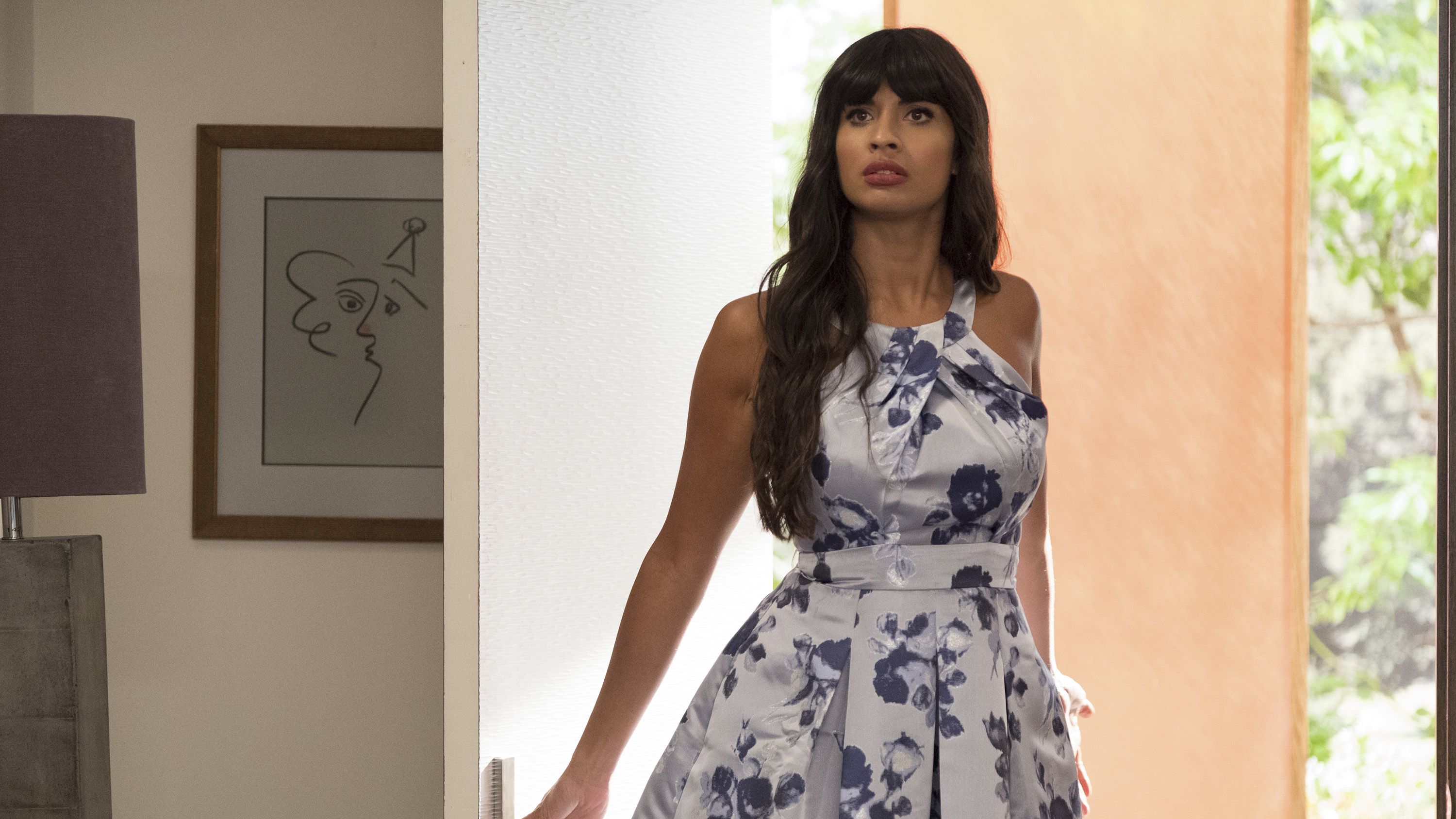
The beautiful and vapid Tahani (Jameela Jamil)
Ultimately, The Good Place helps us question the black and white themes we assign to philosophy and, subsequently, to life.
So what does the series do well? Does it fly the flag for deontology? Is it a fast-track to inciting a mass existential crisis among its viewership? Is its purpose to make us grapple with our personal truths? Please help.
“I don’t think the show is trying to present a particular thinker or ideology,” maintains Dr. Hieronymi. “I think it’s about exploring a set of questions about what it is to be a good person, what kind of motives you need to be a good person, how those motives are cultivated in a life, the ways in which we face pretty significant but also pretty dark-variety challenges in developing those motives.”
Kind of the way Eleanor doesn’t trust easily because of her mom, or Tahani strives to be a “good person” as a means of impressing her parents. “You have these significant obstacles that go into developing motives,” she concludes. “And then the things we do and the outcomes we bring about that harm other people...they go about exploring this set of issues of what it is to live a good life, be a good person, and how we become somebody who is decent in the messy context that we find ourselves in.”
In short: Life is messy, people make it messier. And that might be exactly why The Good Place hits home for so many of us. Can’t wait for season four.
For more stories like this, including celebrity news, beauty and fashion advice, savvy political commentary, and fascinating features, sign up for the Marie Claire newsletter.
RELATED STORY
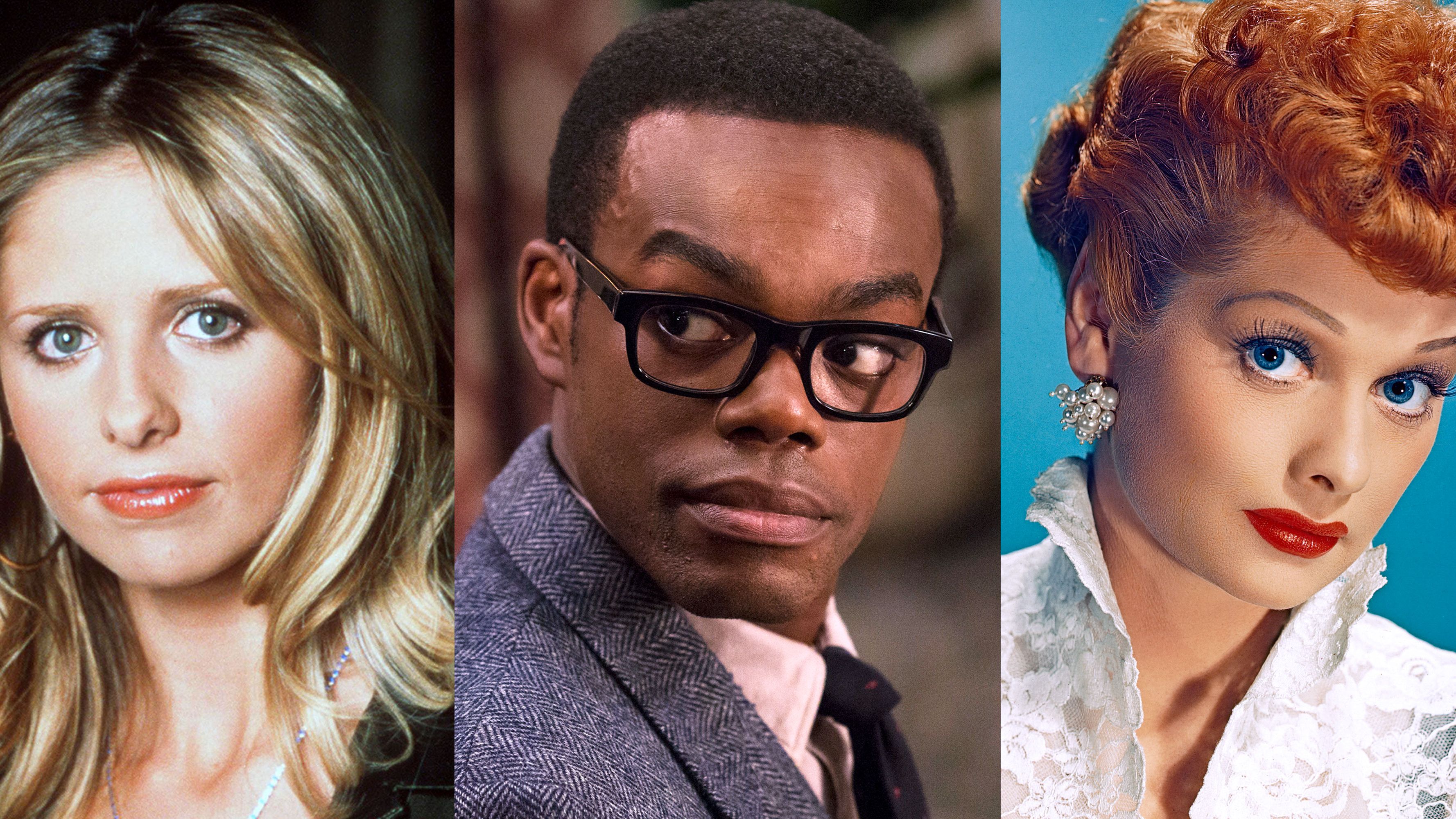
Anne T Donahue is a writer and person originally from Cambridge, Ontario, and is the author of the essay collection, Nobody Cares.
-
 Princess Anne's Unexpected Suggestion About Mike Tindall's Nose
Princess Anne's Unexpected Suggestion About Mike Tindall's Nose"Princess Anne asked me if I'd have the surgery."
By Amy Mackelden Published
-
 Queen Elizabeth's "Disapproving" Royal Wedding Comment
Queen Elizabeth's "Disapproving" Royal Wedding CommentShe reportedly had lots of nice things to say, too.
By Amy Mackelden Published
-
 Palace Employees "Tried" to Get King Charles to "Slow Down"
Palace Employees "Tried" to Get King Charles to "Slow Down""Now he wants to do more and more and more. That's the problem."
By Amy Mackelden Published
-
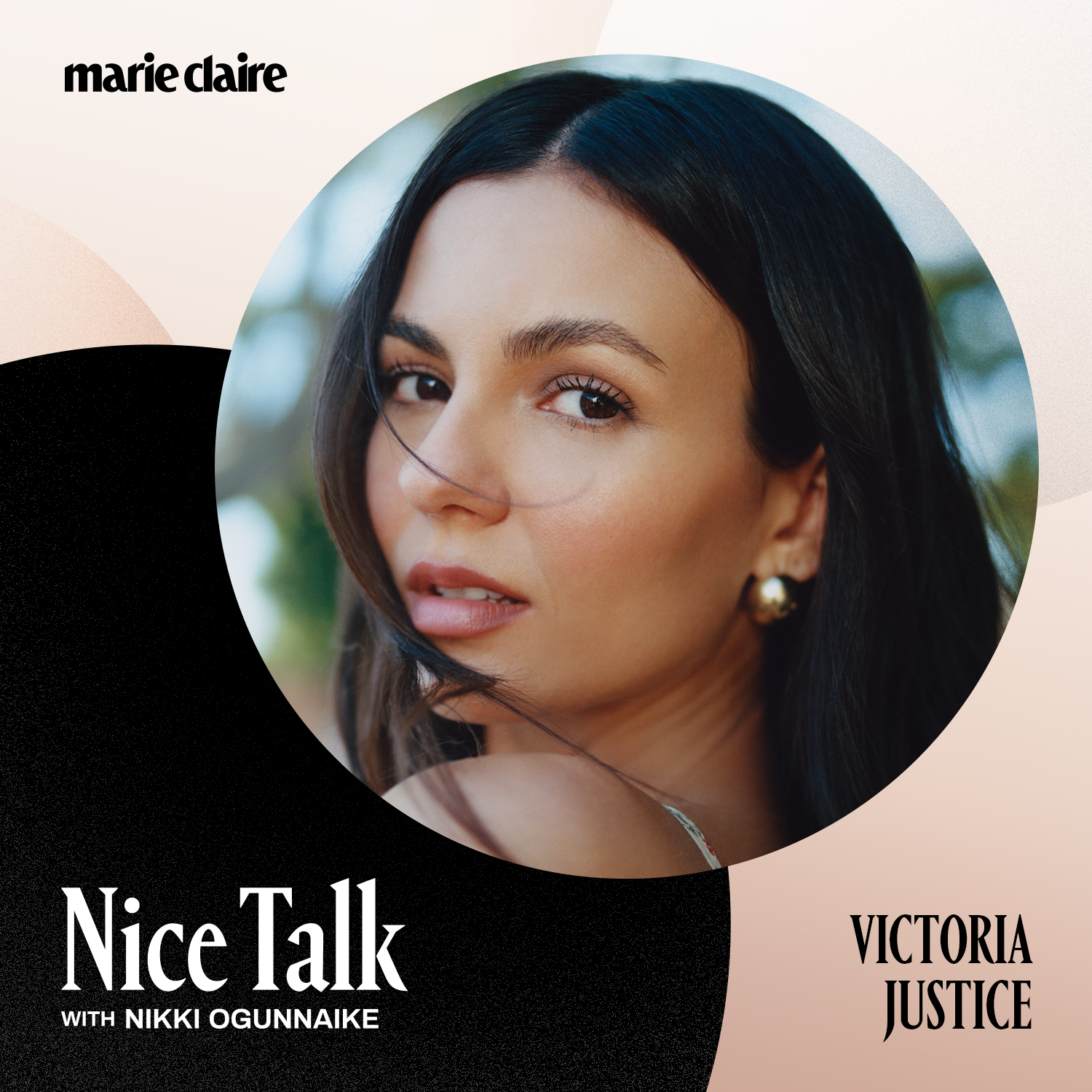 How Victoria Justice Learned to Use Her Voice on the Set of 'Victorious'
How Victoria Justice Learned to Use Her Voice on the Set of 'Victorious'The former Nickelodeon star recalls what it was like to speak up to adults on set as a child.
By Sadie Bell Published
-
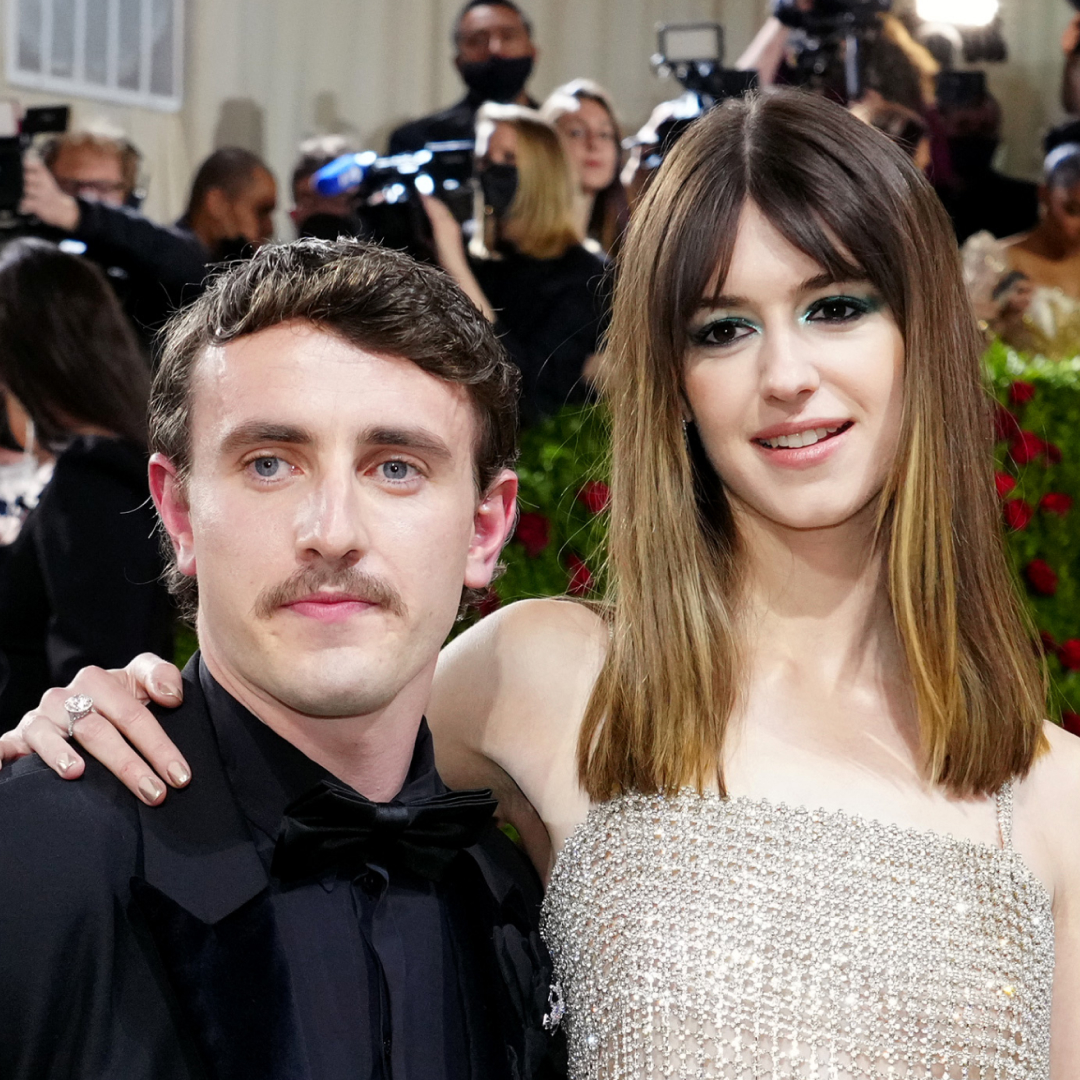 Paul Mescal and Daisy Edgar-Jones Tease an Announcement: "We've Got Some News to Share"
Paul Mescal and Daisy Edgar-Jones Tease an Announcement: "We've Got Some News to Share"The former 'Normal People' costars and IRL best friends seem to have a new project in the works.
By Sadie Bell Published
-
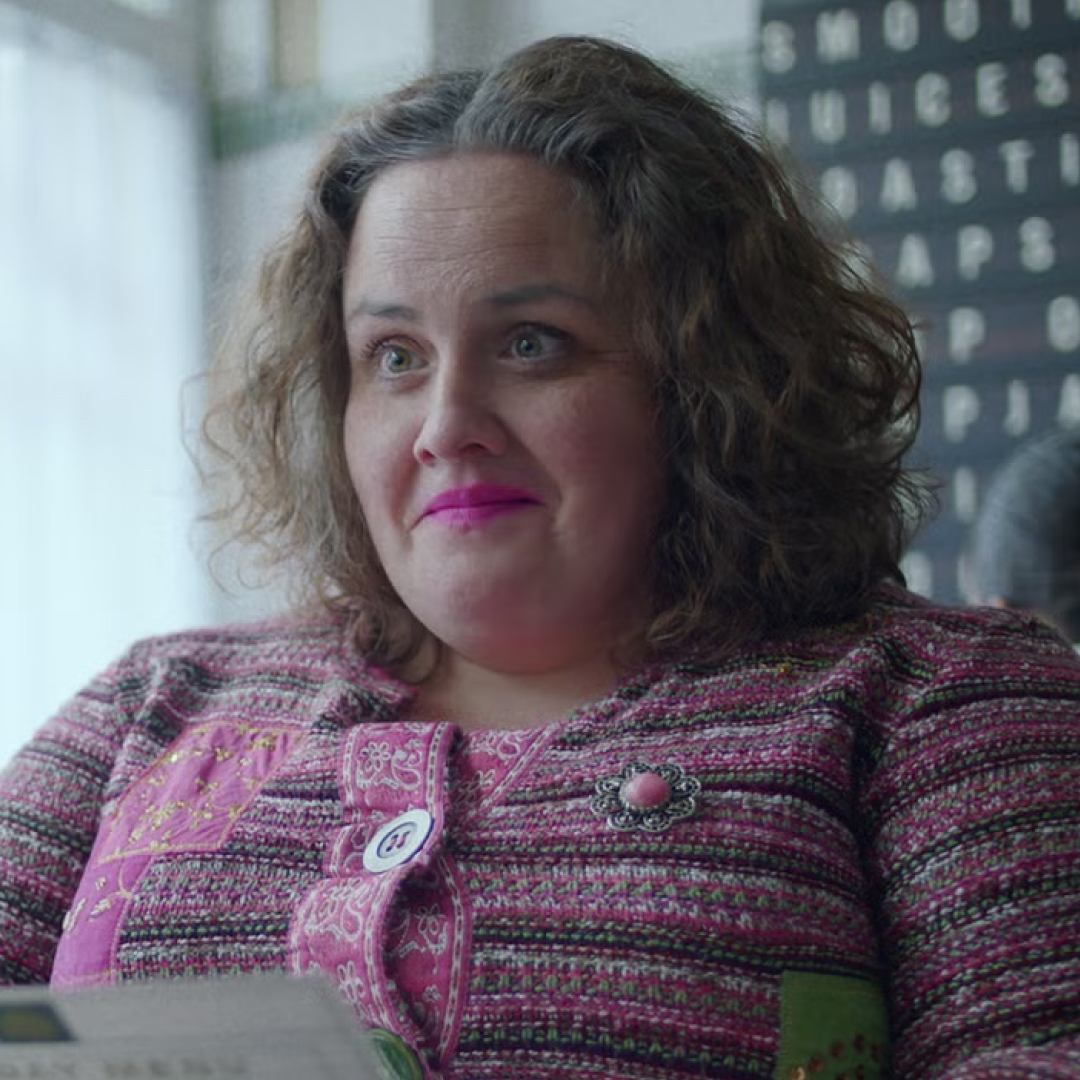 The Woman Who Inspired Martha in 'Baby Reindeer' Calls the Series "a Work of Fiction" In a YouTube Interview
The Woman Who Inspired Martha in 'Baby Reindeer' Calls the Series "a Work of Fiction" In a YouTube InterviewA woman has come forward as the alleged inspiration behind Martha in the hit Netflix series.
By Sadie Bell Last updated
-
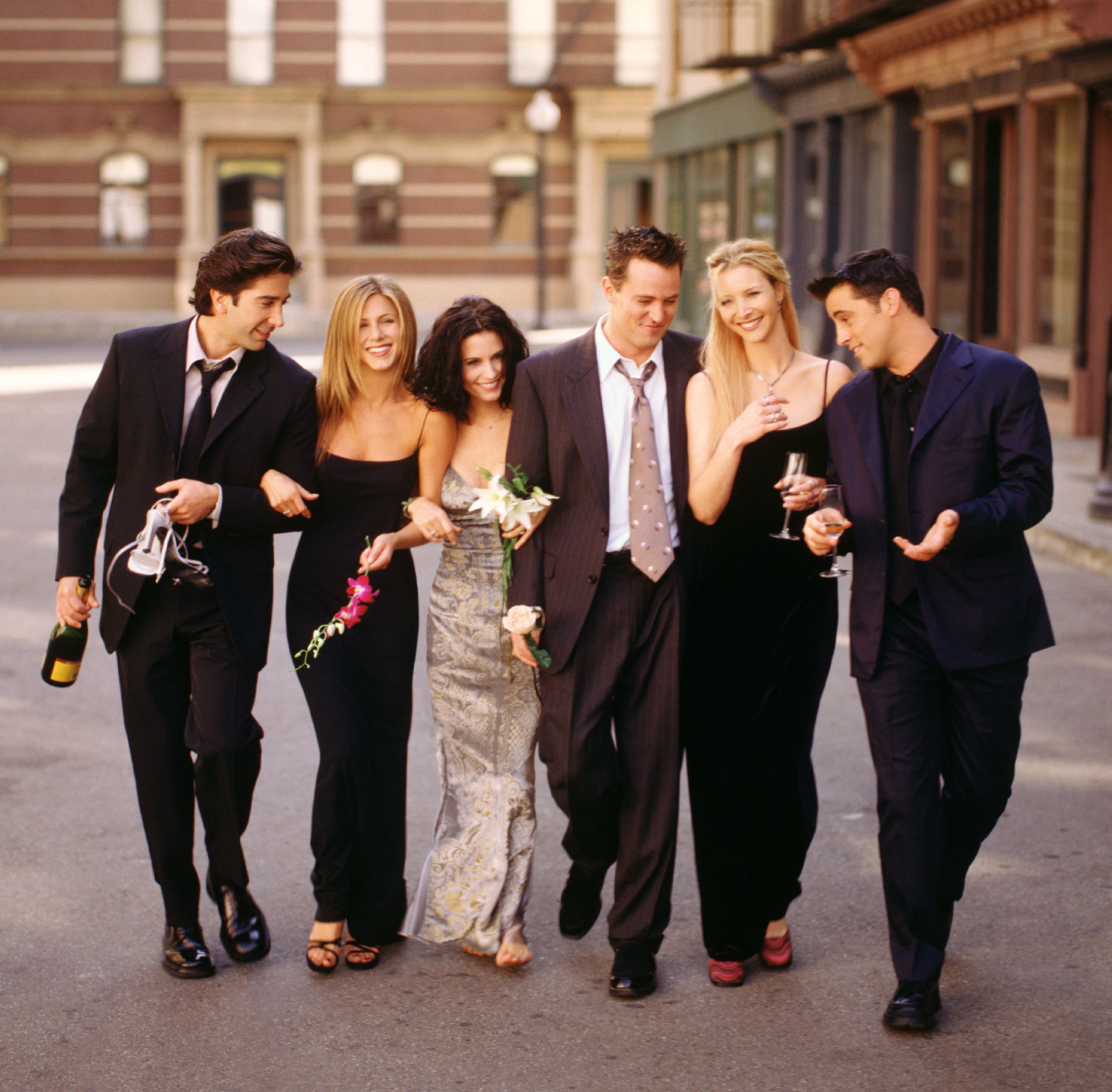 The Best 'Friends' Episodes of All Time
The Best 'Friends' Episodes of All TimeCould these BE any better?
By Katherine J. Igoe Published
-
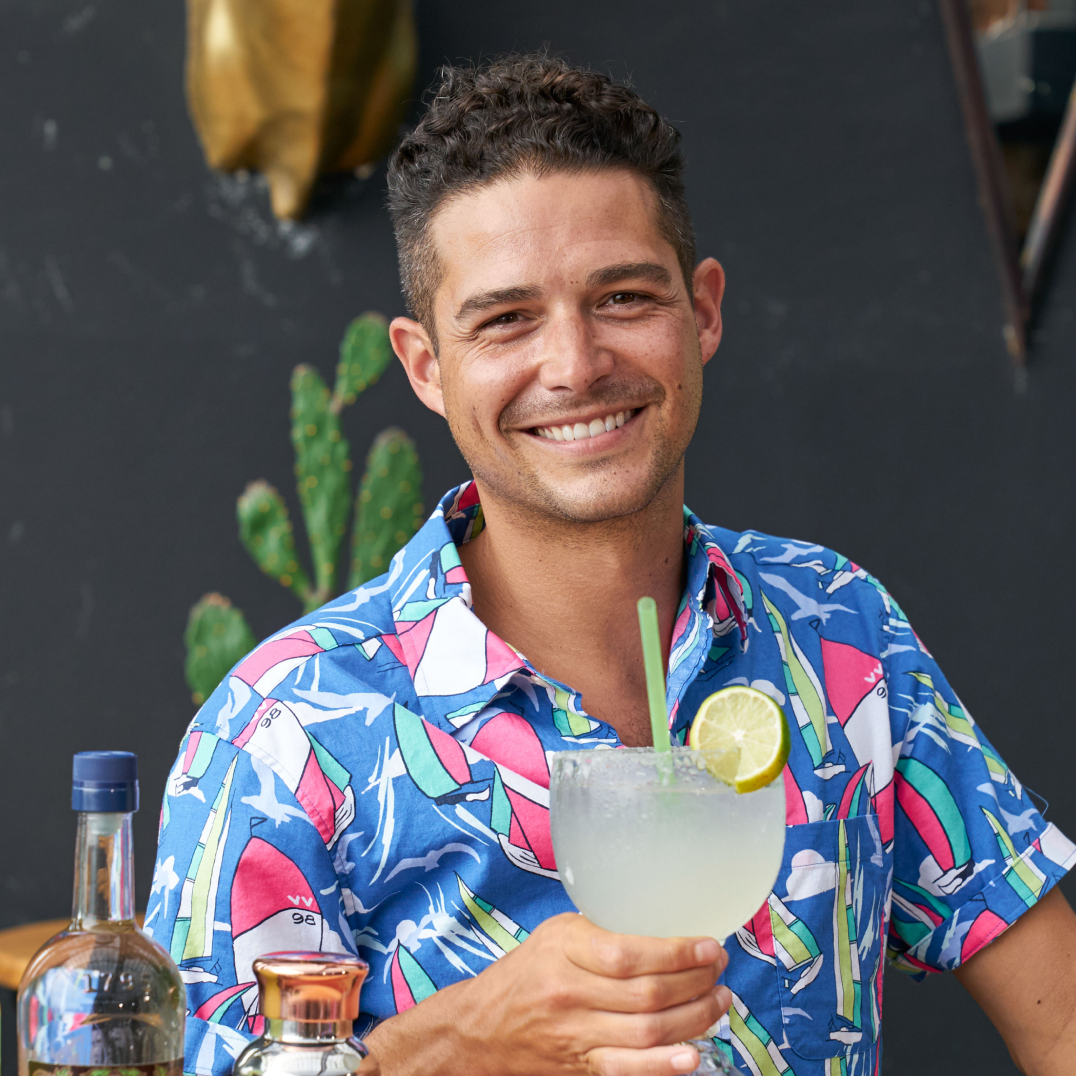 ‘Bachelor in Paradise’ 2023: Everything We Know
‘Bachelor in Paradise’ 2023: Everything We KnowCue up Mike Reno and Ann Wilson’s \201cAlmost Paradise."
By Andrea Park Last updated
-
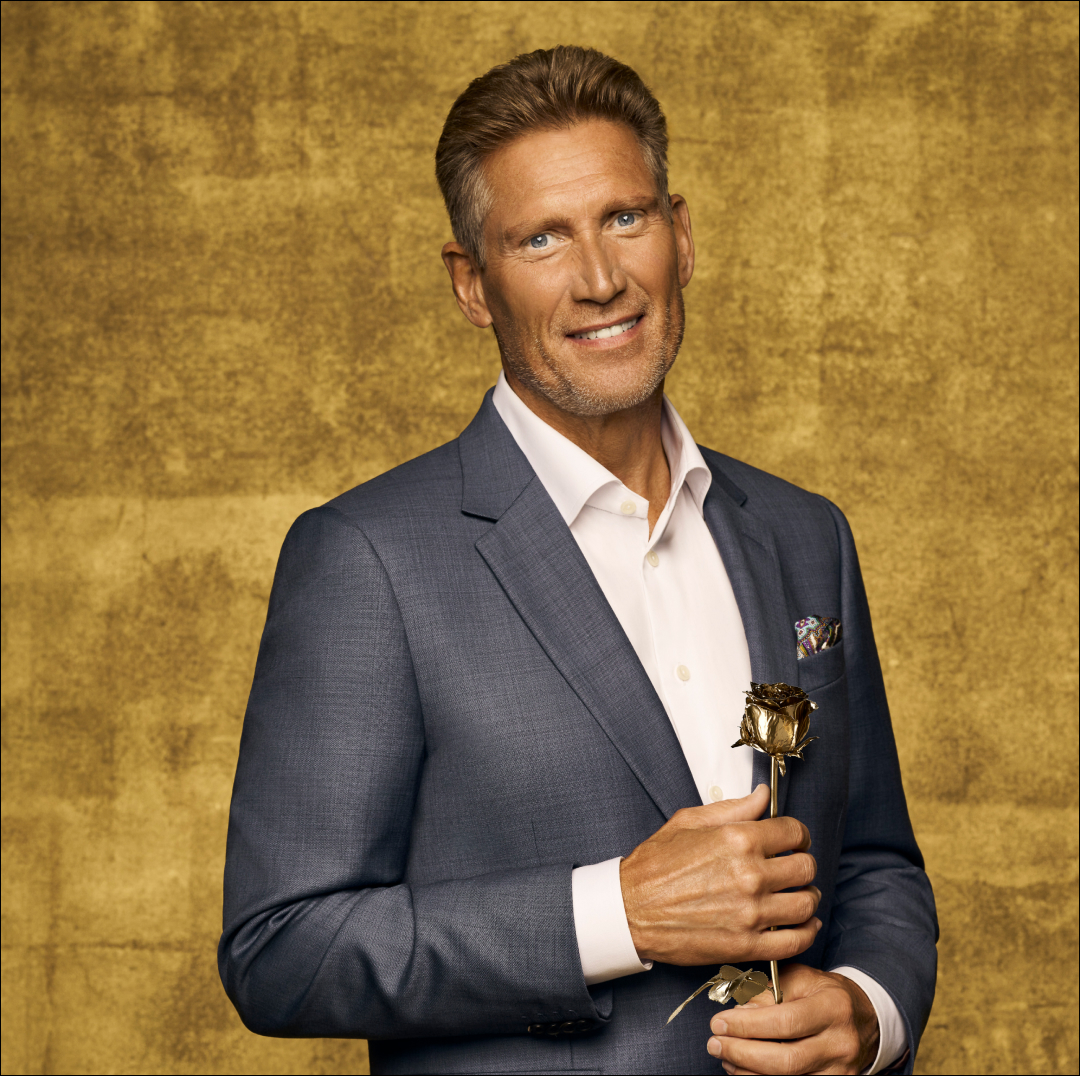 Who Is Gerry Turner, the ‘Golden Bachelor’?
Who Is Gerry Turner, the ‘Golden Bachelor’?The Indiana native is the first senior citizen to join Bachelor Nation.
By Andrea Park Last updated
-
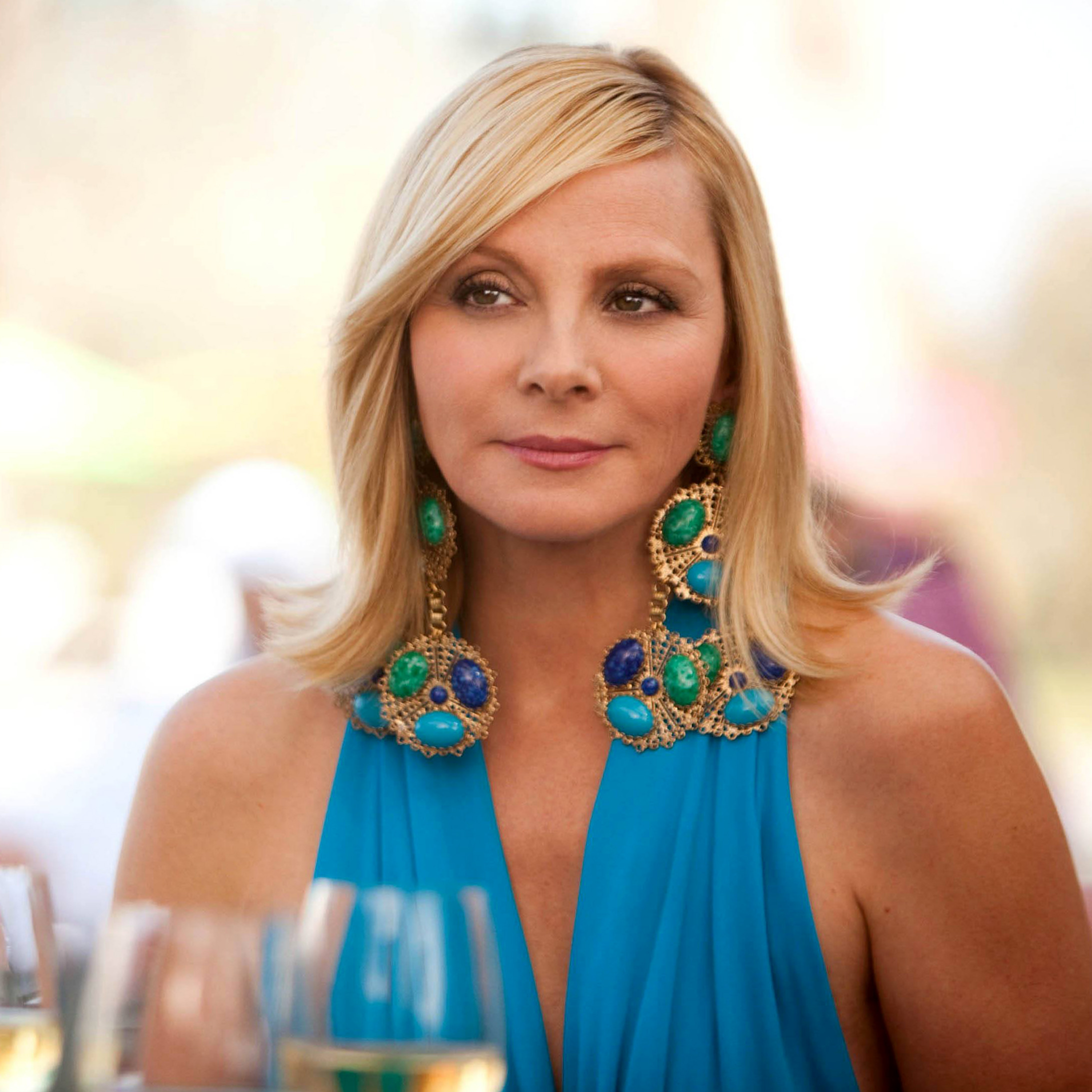 Kim Cattrall Didn't See or Speak to Her Costars When Filming 'And Just Like That' Cameo
Kim Cattrall Didn't See or Speak to Her Costars When Filming 'And Just Like That' CameoThat's some type of commitment.
By Iris Goldsztajn Published
-
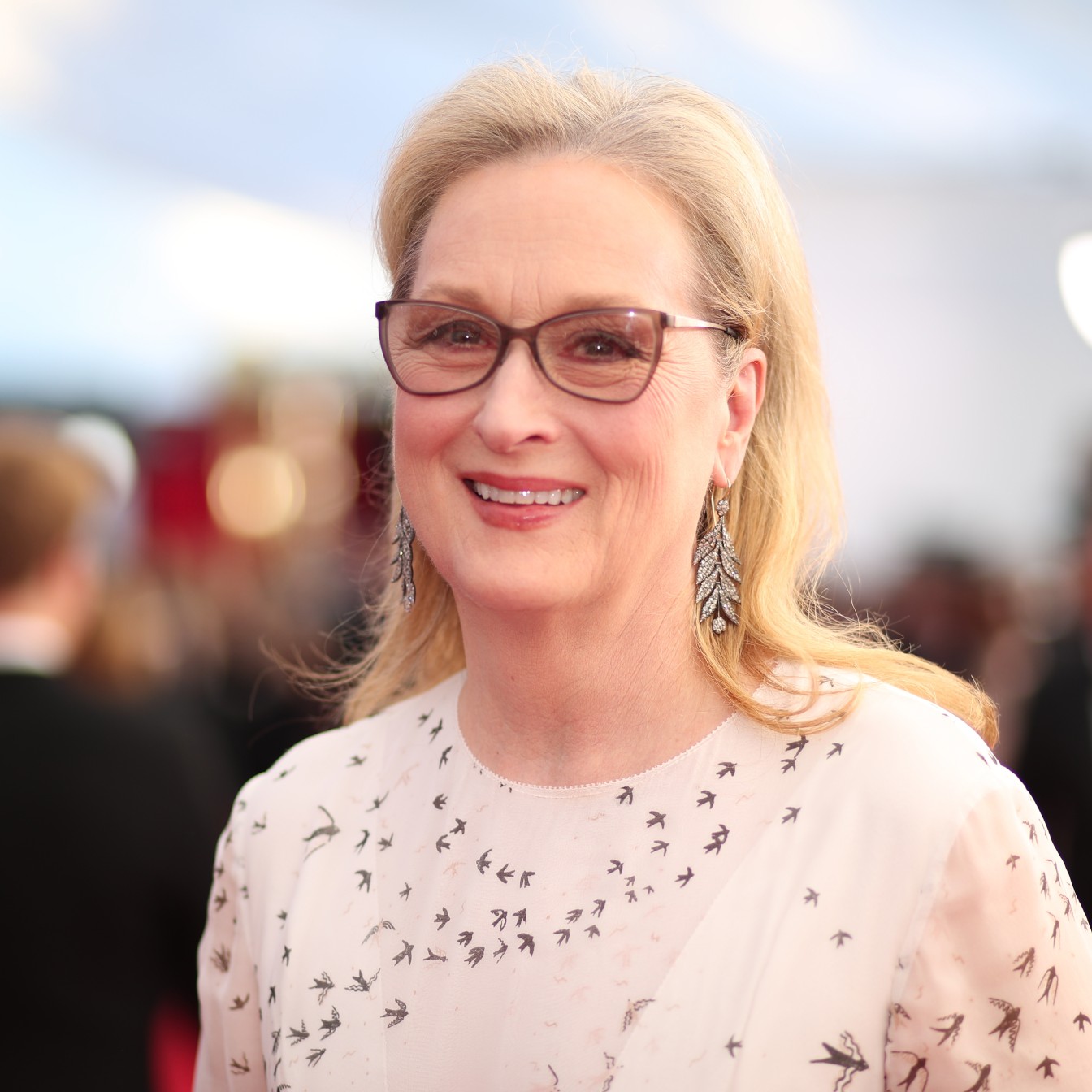 Selena Gomez Revealed Meryl Streep Is Joining 'Only Murders in the Building' Season 3
Selena Gomez Revealed Meryl Streep Is Joining 'Only Murders in the Building' Season 3Fans are losing it.
By Iris Goldsztajn Published